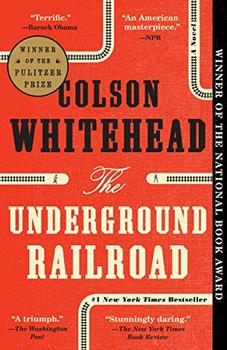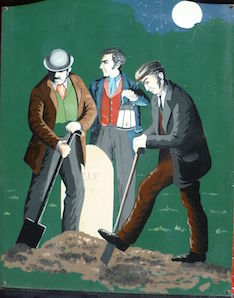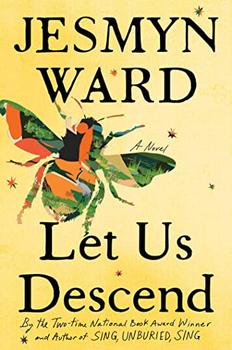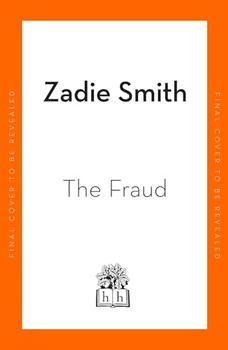Summary | Excerpt | Reading Guide | Discuss | Reviews | Beyond the book | Read-Alikes | Genres & Themes | Author Bio

Critics' Opinion:
Readers' Opinion:
First Published:
Aug 2016, 320 pages
Paperback:
Jan 2018, 336 pages
 Book Reviewed by:
Book Reviewed by:
Norah Piehl
Buy This Book
From prize-winning, bestselling author Colson Whitehead, a magnificent tour de force chronicling a young slave's adventures as she makes a desperate bid for freedom in the antebellum South
Cora is a slave on a cotton plantation in Georgia. Life is hell for all the slaves, but especially bad for Cora; an outcast even among her fellow Africans, she is coming into womanhood—where even greater pain awaits. When Caesar, a recent arrival from Virginia, tells her about the Underground Railroad, they decide to take a terrifying risk and escape. Matters do not go as planned—Cora kills a young white boy who tries to capture her. Though they manage to find a station and head north, they are being hunted.
In Whitehead's ingenious conception, the Underground Railroad is no mere metaphor—engineers and conductors operate a secret network of tracks and tunnels beneath the Southern soil. Cora and Caesar's first stop is South Carolina, in a city that initially seems like a haven. But the city's placid surface masks an insidious scheme designed for its black denizens. And even worse: Ridgeway, the relentless slave catcher, is close on their heels. Forced to flee again, Cora embarks on a harrowing flight, state by state, seeking true freedom.
Like the protagonist of Gulliver's Travels, Cora encounters different worlds at each stage of her journey—hers is an odyssey through time as well as space. As Whitehead brilliantly re-creates the unique terrors for black people in the pre–Civil War era, his narrative seamlessly weaves the saga of America from the brutal importation of Africans to the unfulfilled promises of the present day. The Underground Railroad is at once a kinetic adventure tale of one woman's ferocious will to escape the horrors of bondage and a shattering, powerful meditation on the history we all share.
Excerpt
The Underground Railroad
THE first time Caesar approached Cora about running north, she said no.
This was her grandmother talking. Cora's grandmother had never seen the ocean before that bright afternoon in the port of Ouidah and the water dazzled after her time in the fort's dungeon. The dungeon stored them until the ships arrived. Dahomeyan raiders kidnapped the men first, then returned to her village the next moon for the women and children, marching them in chains to the sea two by two. As she stared into the black doorway, Ajarry thought she'd be reunited with her father, down there in the dark. The survivors from her village told her that when her father couldn't keep the pace of the long march, the slavers stove in his head and left his body by the trail. Her mother had died years before.
Cora's grandmother was sold a few times on the trek to the fort, passed between slavers for cowrie shells and glass beads. It was hard to say how much they ...
Here are some of the comments posted about The Underground Railroad.
You can see the full discussion here.
"The treasure, of course, was the underground railroad… Some might call freedom the dearest currency of all." How does this quote shape the story for you?
This quote underscores the importance freedom to Martin's father, Donald, who founded a spur of the Underground RR in North Carolina, where "working this far south was suicide...". He hoped Martin would see the importance of his mission, and carry it... - pamelah
Cora's mother
I agree that having the fate of Mabel held to the end of the story was effective. Mabel was a legend which gave Cora the strength to attempt her many escapes & endure all the hardships cast upon her. The Author could have left her story unresolved ... - marganna
Do you feel that you now have a better understanding of what slavery was like?
I think this book heightened my appreciation for the multifaceted fear, and uncertainty that slaves must have felt. The uncertainty of how one would be treated by a white owner, coupled with the uncertainty of not being able to trust some of your ... - pamelah
Does The Underground Railroad change the way you look at the history of America?
While the book doesn't change the way I look at American history, it does make me more aware of the fact that our history contains many shameful chapters, slavery among them. The book reinforces the need to confront these shameful and sad chapters ... - juliaa
How did the scenes on Randall's plantation affect you as a reader?
The scenes on the plantation were horrible - painful to read. I know we've read & seen the cruelty of man to man & animal from the beginning of time. However to be involved with characters so real, with depth & realism as Mr. Whitehead portrays, made... - marganna
Reading The Underground Railroad offers plenty of reminders of just how far our nation has come since these darkest years in our history, but also countless reminders of just how far we have yet to travel before we arrive at any destination resembling that hopeful vision...continued
Full Review
(766 words)
This review is available to non-members for a limited time. For full access,
become a member today.
(Reviewed by Norah Piehl).
 Whitehead's well-researched novel The Underground Railroad offers glimpses into numerous phenomena characterizing the often-brutal experiences of black Americans in the early nineteenth century, both in the South and the North. In one section, Whitehead profiles a group of Boston-area body snatchers, spurred by demand for cadavers in the rapidly growing field of medical and anatomical research.
Whitehead's well-researched novel The Underground Railroad offers glimpses into numerous phenomena characterizing the often-brutal experiences of black Americans in the early nineteenth century, both in the South and the North. In one section, Whitehead profiles a group of Boston-area body snatchers, spurred by demand for cadavers in the rapidly growing field of medical and anatomical research.
The practice of body snatching for medical research actually dates back to the early 1300s, when four medical students in Bologna, Italy, committed the crime. As interest in anatomy grew during the seventeenth and eighteenth centuries, so did the practice of body snatching, with professional body snatchers (known as "resurrectionists") employing...
This "beyond the book" feature is available to non-members for a limited time. Join today for full access.

If you liked The Underground Railroad, try these:

by Jesmyn Ward
Published 2024
From Jesmyn Ward—the two-time National Book Award winner, youngest winner of the Library of Congress Prize for Fiction, and MacArthur Fellow—comes a haunting masterpiece, sure to be an instant classic, about an enslaved girl in the years before the Civil War.

by Zadie Smith
Published 2024
From acclaimed and bestselling novelist Zadie Smith, a kaleidoscopic work of historical fiction set against the legal trial that divided Victorian England, about who gets to tell their story—and who gets to be believed





The House on Biscayne Bay
by Chanel Cleeton
As death stalks a gothic mansion in Miami, the lives of two women intertwine as the past and present collide.

The Flower Sisters
by Michelle Collins Anderson
From the new Fannie Flagg of the Ozarks, a richly-woven story of family, forgiveness, and reinvention.

The Funeral Cryer by Wenyan Lu
Debut novelist Wenyan Lu brings us this witty yet profound story about one woman's midlife reawakening in contemporary rural China.
Your guide toexceptional books
BookBrowse seeks out and recommends the best in contemporary fiction and nonfiction—books that not only engage and entertain but also deepen our understanding of ourselves and the world around us.